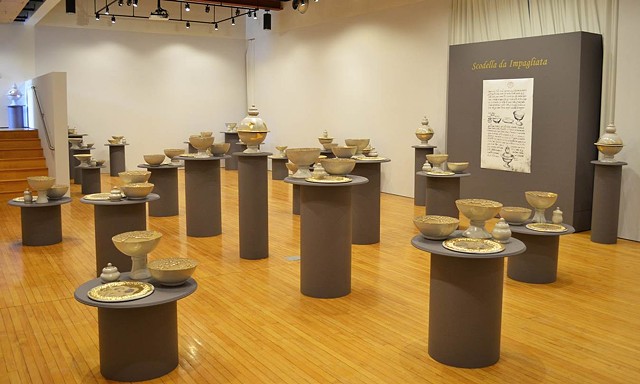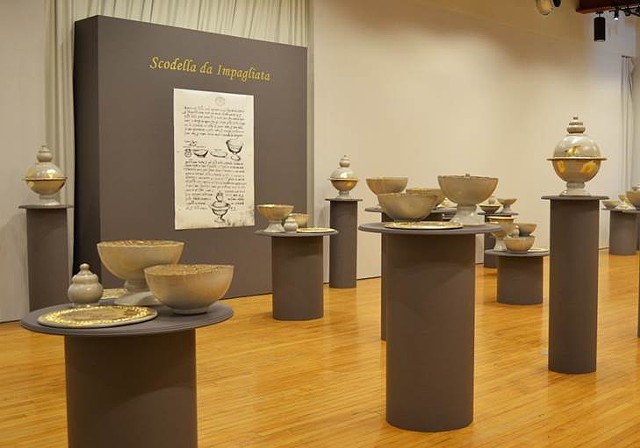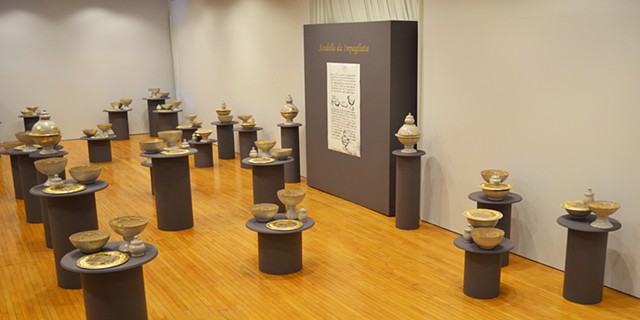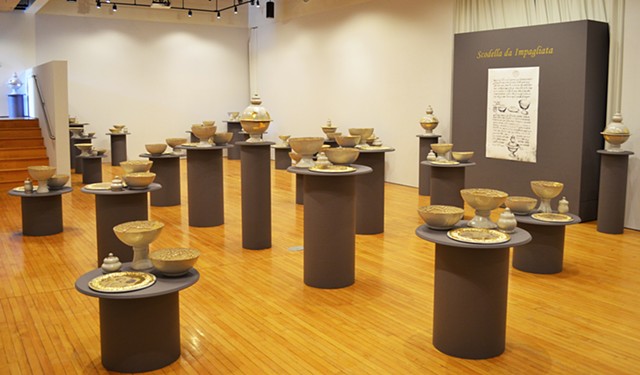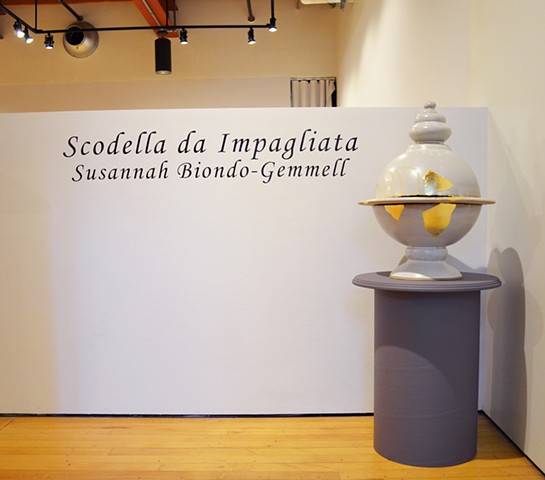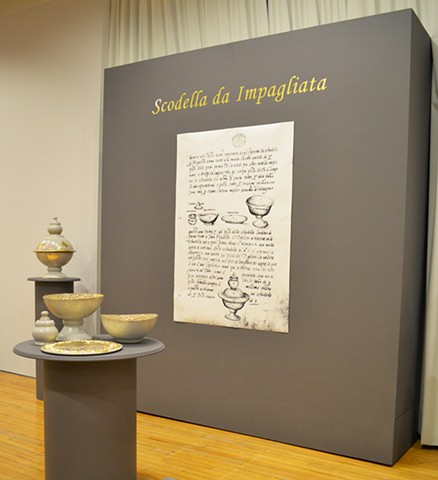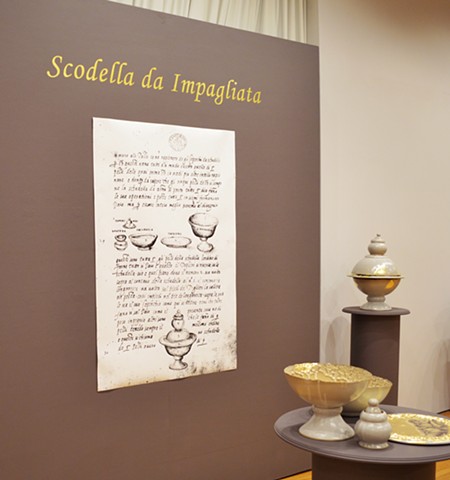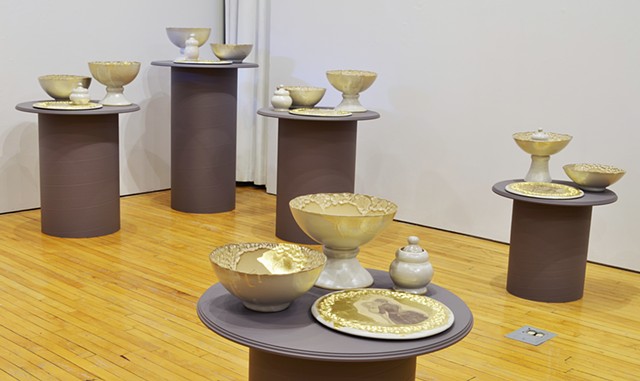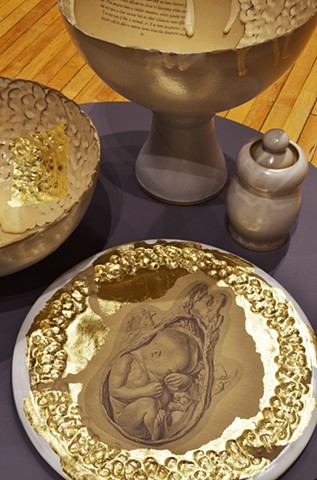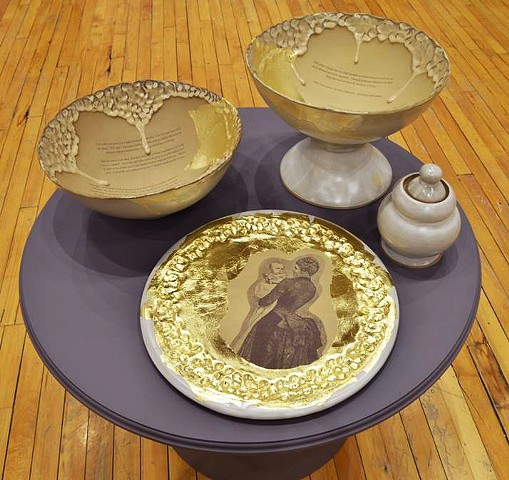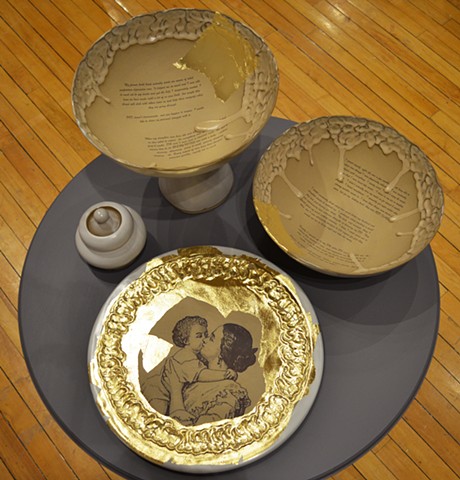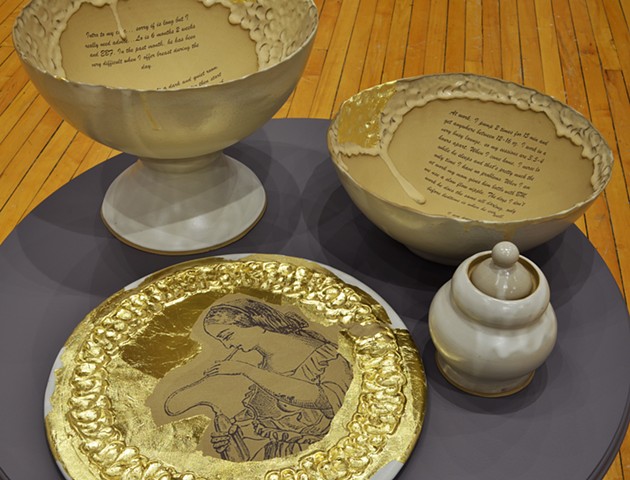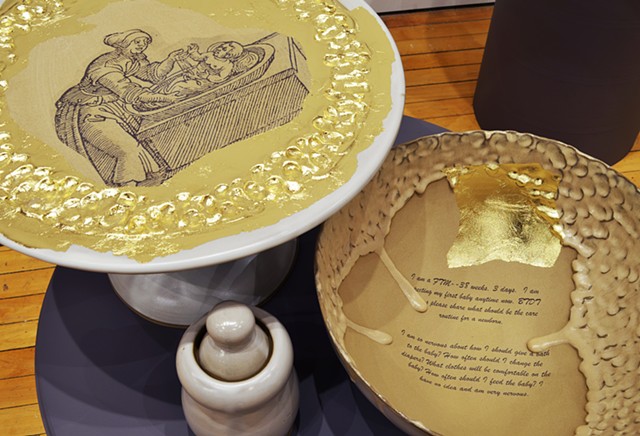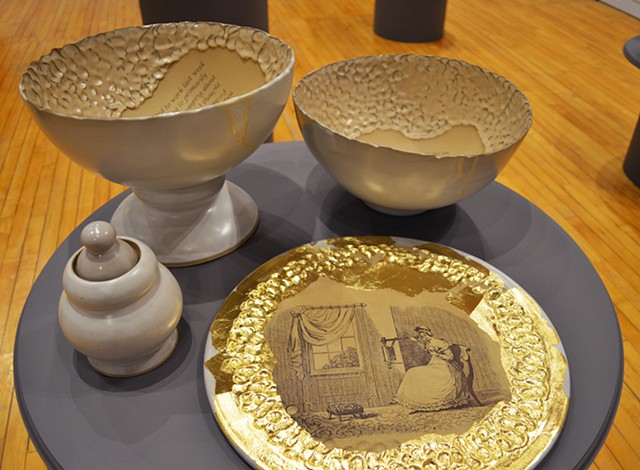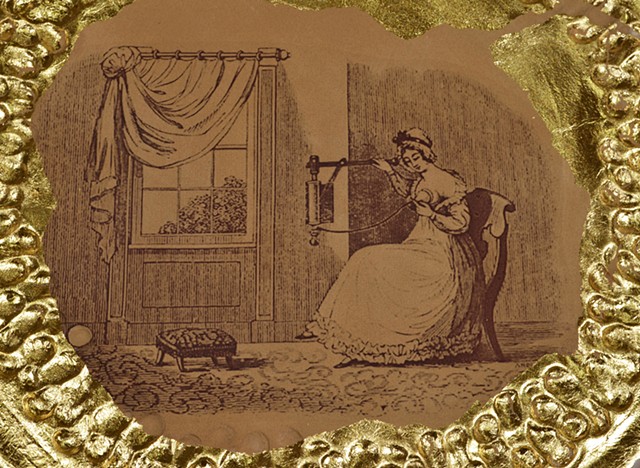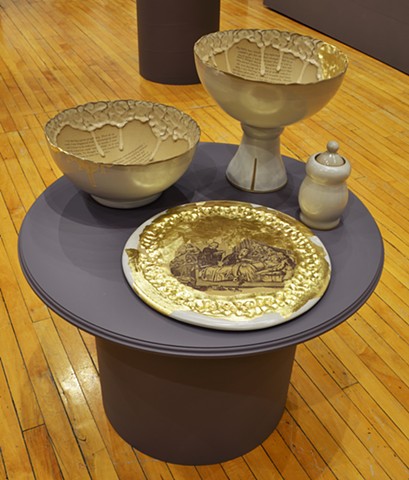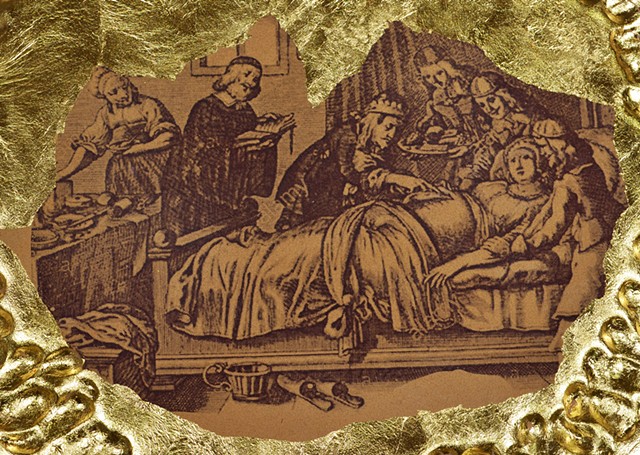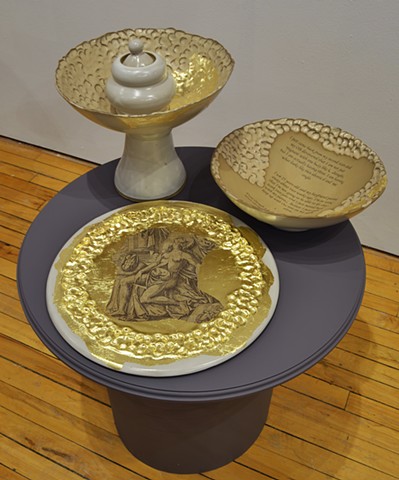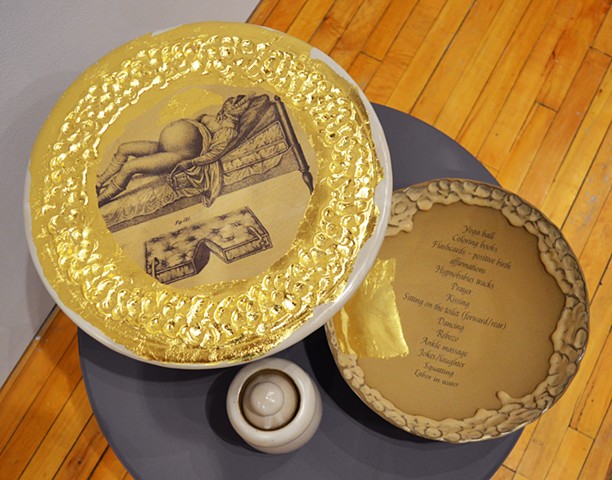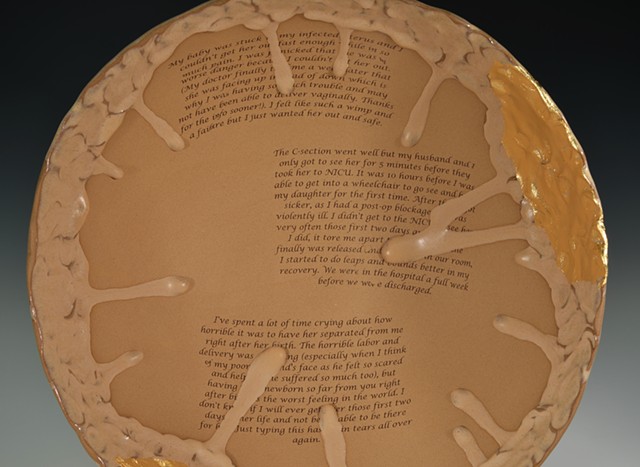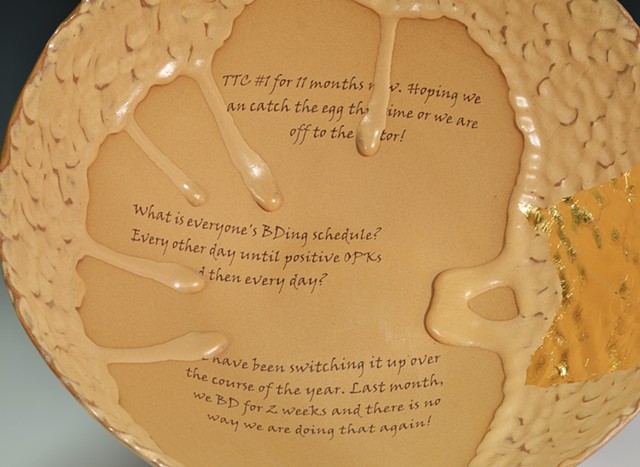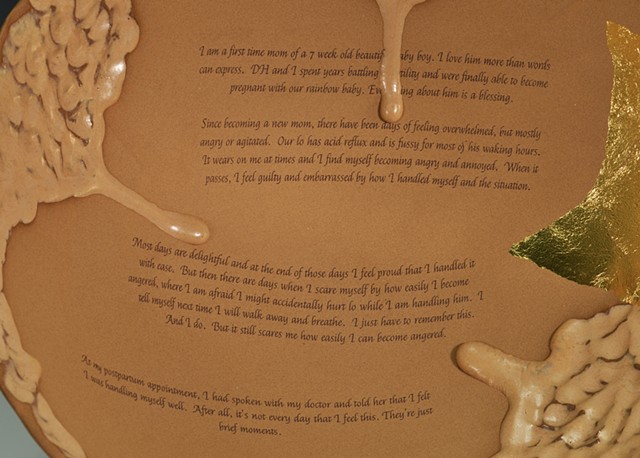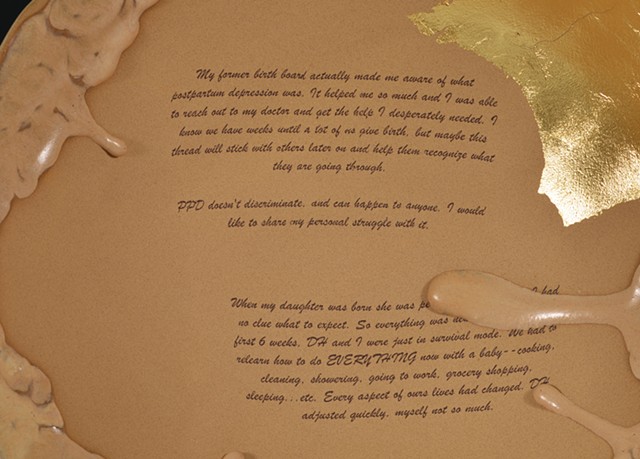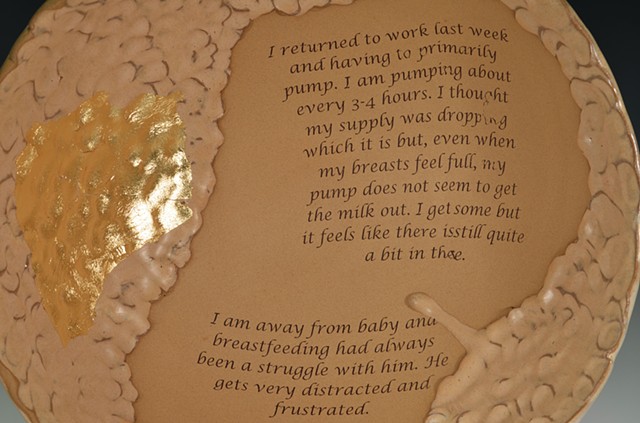Scodella da Impagliata
Scodella da Impagliata
Scodella da Impagliata literally translates from Italian to “stuffed bowl.” It was a phrase used by Renaissance craftsman and poet, Cipriano Piccolpasso, to describe multi-piece ceramic childbirth vessels. A print of Piccolpasso’s original drawing, the only visual record of these full sets, hangs in the back of the gallery. These objects were given to expecting and new mothers during the Renaissance before or soon after the birth of a child. The objects had multiple purposes. They were functional objects used to nourish the new mother. They were celebratory objects congratulating the birth of a new child postpartum. And, most interestingly, they were educational and consolatory objects used to instruct and calm women during moments of concern and fear.
This body of ceramic work reconsiders the historical “scodella da parto” form. Mold-making and ceramic slip-casting processes were used to create forty 5-piece vessels representing the forty weeks of an average pregnancy. Historical imagery is paired with contemporary text in order to draw similarities and differences between maternal experiences across time periods, including in areas such as fertility, pregnancy, birth, and early childrearing. The images are sourced from historical medical journals, midwifery texts, product advertisements, and educational materials, while the text originates from contemporary social media forums on motherhood. Specific iconography would have been understood and appreciated by the contemporaries of the images, just as specific terms and language used on the vessels are understood by members of these social media communities. Gold leaf is used to frame the images, separate the private space of the interior, and reference historical gilding processes. Voices of humor, wit, awe, complacency, shock, and despair are all reflected in these narratives.
The exhibition draws relationships and points out disparities between childbirth experiences, while encouraging more conversations on the topic. Scodella da Impagliata hopes to highlight both the wonder and tragedy that comes with bringing a human into our world.
Susannah Biondo-Gemmell
